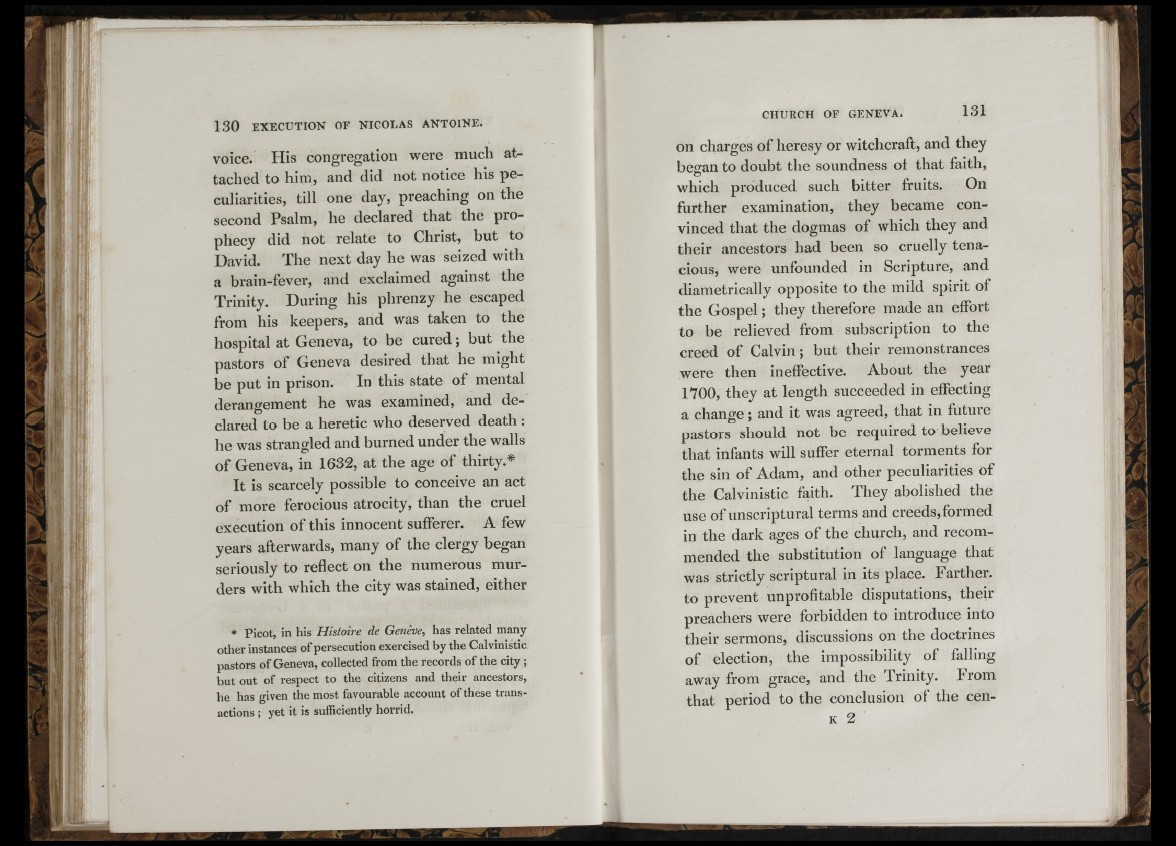
.!■ ^j>r
ii :4II' '-îil;. -■I'm
:iSi' ■Î’ -L-
, D' ; 'lin/ ■Ii ’i"';
^\* 1-f- - '-!‘«->I•.
^1':
S3«<
ffi:
i"S:U ' ... ‘üÎ:
ii
130 EXECUTION OF NICOLAS A N TOIN E .
voice. His congregation were much attached
to him, and did not notice his peculiarities,
till one day, preaching on the
second Psalm, he declared that the prophecy
did not relate to Christ, but to
David. The next day he was seized with
a brain-fever, and exclaimed against the
Trinity. During his phrenzy he escaped
from his keepers, and was taken to the
hospital at Geneva, to be cured ; but the
pastors of Geneva desired that he might
be put in prison. In this state of mental
derangement he was examined, and declared
to be a heretic who deserved death :
he was strangled and burned under the walls
of Geneva, in 1632, at the age of thirty.*
It is scarcely possible to conceive an act
of more ferocious atrocity, than the cruel
execution of this innocent sufferer. A few
years afterwards, many of the clergy began
seriously to reflect on the numerous murders
with which the city was stained, either
* Picot, in his Histoire de Genève, has related many
other instances of persecution exercised by the Calvinistic
pastors of Geneva, collected from the records of the city ;
but out of respect to the citizens and their ancestors,
he has given the most favourable account of these transactions
; yet it is sufficiently horrid.
!
on charges of heresy or witchcraft, and they
began to doubt the soundness of that faith,
which produced such bitter fruits. On
further examination, they became convinced
that the dogmas of which they and
their ancestors had been so cruelly tenacious,
were unfounded in Scripture, and
diametrically opposite to the mild spirit of
the Gospel ; they therefore made an effort
to be relieved from subscription to the
creed of Calvin; but their remonstrances
were then ineffective. About the year
1700, they at length succeeded in effecting
a change ; and it was agreed, that in future
pastors should not be required to believe
that infants will suffer eternal torments for
the sin of Adam, and other peculiarities of
the Calvinistic faith. They abolished the
use of unscriptural terms and creeds, formed
in the dark ages of the church, and recommended
the substitution of language that
was strictly scriptural in its place. Farther,
to prevent unprofitable disputations, their
preachers were forbidden to introduce into
their sermons, discussions on the doctrines
of election, the impossibility of falling
away from grace, and the Trinity. From
th at period to the conclusion of the cen-
K 2